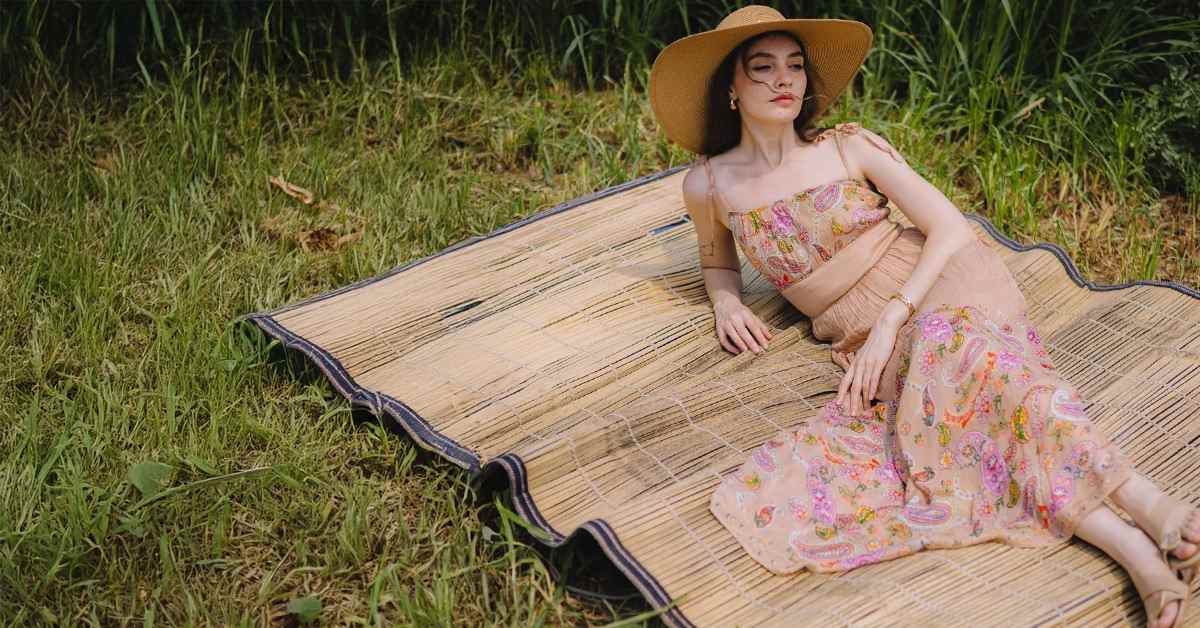
In an era characterized by relentless pace and ceaseless demands, the elegance of one’s wardrobe often becomes a mere afterthought amidst the hustle and bustle of our daily pursuits. Yet, investing just a modicum of time in the care of your exquisite garments can yield remarkable dividends.
Not only does meticulous attention to your attire ensure that each piece retains its pristine allure and longevity, but it also proves to be a prudent financial decision in the grand tapestry of fashion.
Whether you are a seasoned style connoisseur or simply a devotee of timeless elegance eager to safeguard your cherished ensembles, these refined garment care tips will ensure that your Kikibabe creations remain resplendent and captivating throughout every season.
Why Care for Garments?
Caring for your clothes is not only about good looks but also about sustainability. Fashion is seen as one of the leading causes of environmental degeneration, with millions of tons of garments being thrown into landfills each year.
Properly taking care of your garments doubles their life span and thereby reduces overall waste, minimizing your carbon footprint in turn. Below are listed some of the reasons why garment care is important.
-
Economical: Well-cared-for clothes last longer and minimize the need for frequent replacements.
-
Sustainability: You are prolonging the life of your garments; hence, you minimize landfill waste and reduce harm to the environment.
-
Confidence: Well-cared-for clothes instil confidence in you and make you look more presentable.
Basic Care of Garments
1. Always Check for Spots and Stains Immediately
After wearing your clothes, always check for any spots or stains. Treating them right away means they won't set and get harder to remove with time.
Hint: If spots are fresh, treat them with stain remover or mix vinegar with baking soda before washing.
2. Wash Less Frequently
Vigorous and consecutive garment washing could also lead to fabric damage and faded colours. Some items, like jeans or a sweater, don’t necessarily need to be washed after just one wear.
Tip: To freshen up clothes and not have them washed after every wear, it will be good that they should hang outside under the sun.
3. Washing Instructions Must Be Followed
Always follow the care labels of your garments; they are guidelines on how to exactly wash, dry, and iron them.
Hint: Sort darks from lights so colors do not bleed and, pre-treat delicate fabrics and then wash those in the most gentle cycle.
4. Cold Water Intake
Washing in cold water is easier on fabrics, it helps preserve colours, and surely saves energy.
Tip: Washing in cold water saves up to 90% of energy compared to hot water.
5. Air Dry When Ever Possible
Tumble drying often causes fabrics to shrink and wear; air drying by hanging on a line or drying rack is preferred.
Hint: To reduce wrinkles hang clothes straight after a quick shake.
6. Store Clothes Properly
Proper storage is essential for maintaining the shape and quality of your garments.
-
Hanging: For more sensitive items, use wooden or padded hangers to prevent stretching.
-
Folding: Items that are weighted, like woollen sweaters, should not hang but instead be folded so they do not lose their shape.
-
Seasonal Storage: The off-season clothes are best kept in breathable bags away from direct sunlight to prevent fading.
7. Get good hangers
Quality hangers provide proper support for your clothes and protect them from damage.
Hint: Do not use wire hangers. Whenever possible, use wood or padded hangers that are soft on fabrics.
8. Iron with Care
Poor ironing can wear out fabrics easily. Always check the temperature settings based on the type of fabric, and do steam if necessary.
Hint: Iron clothes inside-out to protect the woven surface from shine or damage.
9. Know Basic Repairs
The basic ability to sew is all that keeps your favourites out of the discard pile when minor things, like a loose thread or missing button, need attention.
Hint: Always carry a miniature sewing kit that can be helpful in stitching.
10. Eco-Friendly Detergents
Besides the fact that using environmentally friendly detergents promotes their protection, this method also preserves the quality of your clothes through the avoidance of harsh chemicals.
Tip: Make it a point to use biodegradable detergents that are preferably devoid of phosphate and synthetic fragrances.
11. Avoid Fabric Softeners
Fabric softener does the opposite of its name: it degrades fibres over time, shortening the life of your garments, but making the clothes smell nice.
Hint: Whenever you would want it to smell a little more fresh, try incorporating some essential oil when washing.
12. Protect Your Clothes While Cooking
Wear an apron while cooking, so that it saves your clothes from stubborn stains and spills which may later be urbane.
Tip: If you happen to get a stain, treat it instantly with vinegar, as that usually works miracles.
13. Rotate Your Wardrobe
Allow each piece of clothing some time to rest from being worn. Such practice lessens wear and tear for certain items in constant use.
Hint: Build a capsule wardrobe wherein you rotate key pieces throughout the season.
Seasonal considerations
1. Winter Care Tips
When cleaning and storing winter garments in storage, such as coats and sweaters, the end of the season is a good time to get them cleaned before putting them away.
The use of mothballs or lavender sachets in the storage bags prevents pests from feasting on woollen items.
2. Summer Care Tips
Lightweight fabrics, as they require more sweating, should be washed more frequently, but consider how to air-dry, without necessarily using the dryer.
Store summer clothes in cool, dark places away from direct sunlight to avoid fading of bright colours.
Frequently Asked Questions (FAQs)
1. How often should I wash my clothes?
One should only wash clothes when it is necessary, as much of the stuff can be worn a couple of times before going to a wash. For example, there is no need to wear jeans each day; they can be worn several times provided they are not stained or with a smelly scent.
2. How do you store seasonal clothes best?
Store seasonal clothes in permeable bags out of direct sunlight, to prevent fading and damage. Delicates go on either a quality wooden hanger or a padded hanger. Heavier clothing, like sweaters, should be folded to preserve shape.
3. How to get rid of spots?
For fresh stains, immediately set them with vinegar or baking soda. And, of course, always check the labels on your garments to see how different fabrics should be washed and how various stains should be removed.
Conclusion
Caring for your garment means you are investing in your wardrobe and taking care of the environment. By following these key garment care tips, you will be able to keep your clothes fresh and extend their life, being of more value to all positive and sustainable actions within fashion.
Take these habits on not because it helps you, but because it's a pledge to responsible consumption in today's world.
Remember, every little bit counts when it comes to taking care of our planet let's make our choices in clothes count!

